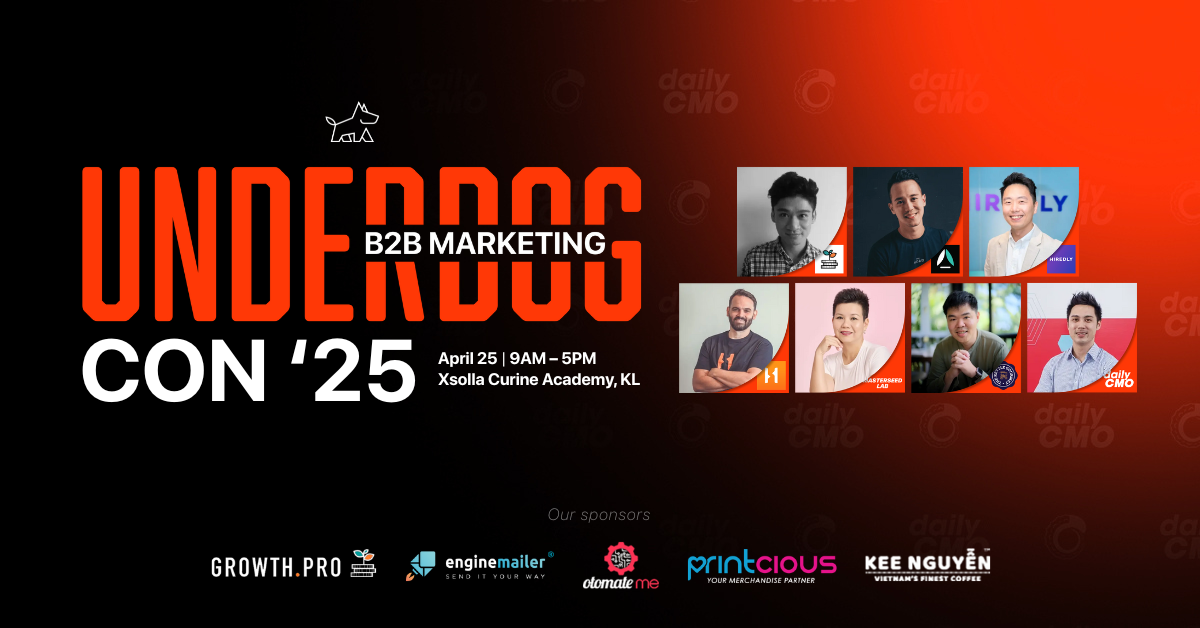SEO isn't dead. We're just doing it wrong
Should I still write blog posts in 2025 and beyond?

While it feels like most businesses these days rely on ads and creating viral content to acquire customers, there are plenty of other businesses that are scaling quietly in the background.
By simply showing up where buyers are searching.
- No interrupting with ads.
- Not blasting the same offer 10 times a day.
Just showing up when a customer types, "how to do bookkeeping for small business".
Recently, I talked to Richard Moh from Growth Pro, a guy who's been in the trenches across B2B and E-Commerce to break down SEO for me. Watch our chat here:
Here are 4 lessons from our chat
1. E-Commerce? Stop blogging. Create collection pages.
Most people think SEO is blogging. Wrong.
If your first SEO move as an E-commerce store is writing blogs, you're wasting your time.
Start with collection pages.
“You want to rank for commercial and transactional keywords,” Richard said. “That means pages that can actually convert. Your blog won’t do that – your product or collection page will.”
When someone searches for "aluminum water bottles", what do they want to find? A blog post or a category page, with a list of aluminum water bottles they can choose from?

2. The silent SEO murderer: Your CMS
But if you're a business that sells to other businesses (B2B), then your SEO strategy is only as good as your content-management system (CMS).
“We’ve seen teams drop five-figure budgets to fix websites they built on the wrong CMS.”
Creating content and optimizing it is time-consuming.
Businesses that attempt to build their own CMS system give themselves more headaches. Maybe you want to brag that you're cooler than the others, with a custom CMS.
But if your site can’t handle technical stuff like schema markup, you’re already playing catch-up. Speed is king in SEO.
So, before you write a single line of content, check your stack. Content platforms like WordPress and Webflow are popular for a reason.
Stick with them unless you’ve got an in-house dev team ready to roll, or a super strong reason why you need a custom CMS.
3. You must see in the long term
Especially for B2B businesses, SEO won't give you instant conversions, even if you rank #1 for the search terms you want.
SEO for B2B businesses is about showing up early in the buying journey.
Let’s say you’re a mid-sized accounting firm. Your future client isn’t searching for “ABC Accounting Services.”
They’re searching:
- “How to manage payroll as a startup”
- “Outsourced CFO vs in-house”
This is where blogs come into play.
You use them to win question-based keywords. The sale may come months later, but your brand is now in the prospect's mind and consideration list.
4. Zero-click search is still SEO

With AI overviews now taking over, it's true that more people will see your content without clicking into your website.
Does this mean SEO is dead?
Here’s the twist:
“If AI pulls your site into a search summary, that’s a sign you’re doing something right. Google thinks you’re relevant.”
Being cited in an AI overview, builds brand trust and SEO authority.
That’s a long game worth playing.
Your customers still search
Despite channels like advertising, social media, and AI taking over, people still search for stuff online.
It’s not about choosing one channel over another. The best brands layer their marketing strategies.
What I’m really interested in is this: how do we combine them all into one seamless marketing system that reaches our customers wherever they are?
Real SEO case studies

Richard doesn’t just talk SEO. He's in the trenches – building, breaking it, and executing it for actual businesses.
And we've asked him to reveal it all at Underdog B2B con. Join us at the conference, as he pulls back the curtain on how B2B brands can rank, conver,t and stay relevant – even in a zero-click, AI-first world.
